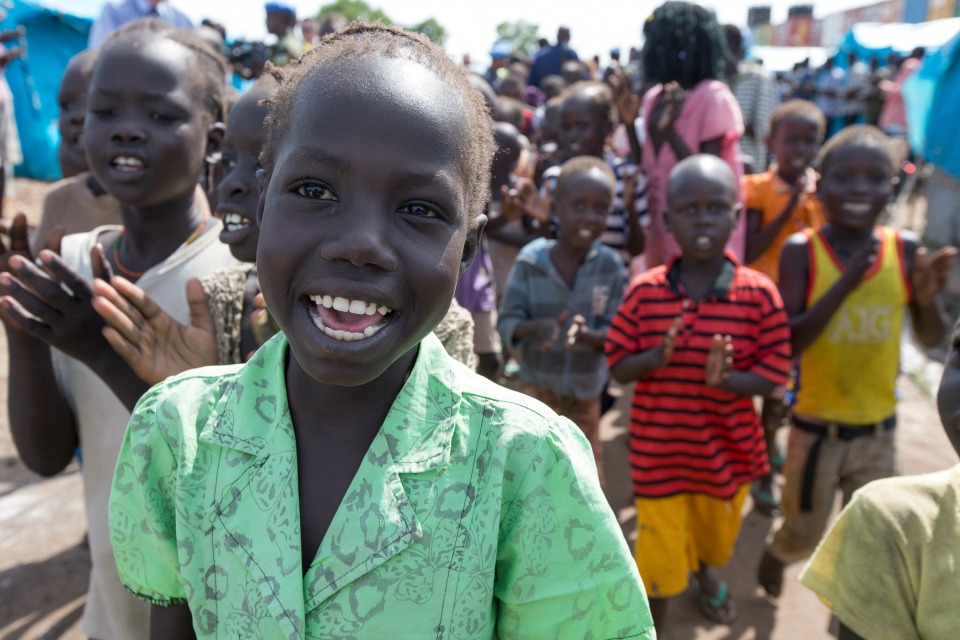"Whether in Syria or in South Sudan, it is clear that we are failing the most vulnerable when they need us the most."
Statement by Ambassador Matthew Rycroft of the UK Mission to the UN: Open Debate on the Protection of Civilians in the Context of Peace-keeping Operations

Let me begin by welcoming President Touadéra and Mr Maurer to the Council and I thank them for their briefings. I also want to thank the Secretary-General for his remarks and for his report on Protection of Civilians.
Sadly, as we’ve heard just now, the protection of civilians in conflict is in crisis. Whether in Syria or in South Sudan, it is clear that we are failing the most vulnerable when they need us the most. When they’re being targeted in their homes, when they’re being targeted in hospitals… And yes, when they’re being targeted by the very peacekeepers sent to protect them. The United Nations invented peacekeeping in order to prevent war, so civilians benefit hugely when peacekeeping works. But too often, peacekeeping is failing to live up to the high standards that victims rightly require.
Yesterday I met Nadia Murad, the Yazidi woman I mentioned in my statement last Friday. She told me, very movingly, how 19 girls were burnt alive this week in her community. That’s the barbarity that civilians now face. It’s almost unspeakable.
And yet, she told me that she still has hope because she feels that justice is on her side.
Our job today is to show people like Nadia that there is cause for hope. That we can and will protect civilians. I see four steps that we need to take.
First, we need to prepare peacekeepers for this seemingly impossible task. How can we best train them; equip them, and deploy them? How can we ensure they make a real difference to the communities that they are sent to protect?
To answer these questions, we need to recognise that as threats to civilians change, so peacekeeping must change too.
This means all of us looking to the future, so that we can better understand operating environments and the threats civilians and peacekeepers face. New technology and better intelligence can help. But to maximise impact and sustainability, personnel need to be trained and equipped to use these new tools. President Obama’s Summit on Peacekeeping last September successfully increased the quantity of peacekeepers available to the UN. We now need to improve the overall quality. The UN needs a mechanism to choose only those troops who can definitively protect civilians effectively and to replace those who are unable or unwilling to fulfill their mandated tasks. In that way, we can create a new generation of peacekeeping, one with the protection of civilians at its heart.
Second, as the tragedies of Syria, South Sudan, Yemen show, there needs to be better compliance with International Humanitarian Law. The Secretary-General’s report makes clear that strengthening compliance with international humanitarian law and human rights law is a prerequisite for improving the protection of civilians.
These laws are binding on all sides of any conflict. They strike a balance between military necessity and basic humanity. When these laws are breached – everyone loses.
The primary responsibility for complying with these laws lies with the parties to conflict, as the Secretary-General and indeed my Russian colleague reminded us today. When they starve and besiege, when they attack schools and hospitals, when they impede humanitarian access – we see unimaginable suffering, populations fleeing, economies collapsing; a whole country left staring into the abyss.
We recognised at the World Humanitarian Summit that the humanitarian system needs reform and I’m pleased that the Summit included a renewed commitment to international humanitarian law.
However, and this is my third point, to deter future breaches of international humanitarian law, we need greater accountability for when there isn’t compliance, when the protection of civilians is ignored or violated. The Secretary-General talks of a ‘pervasive lack of accountability’. This must be tackled. States must investigate crimes that occur in their jurisdiction. When they cannot or will not, international mechanisms like the International Criminal Court have an important role to play.
Accountability is also crucial to improving protection of civilians in peacekeeping. Enhanced reporting mechanisms are needed, including independent Mission observers. Commanders must monitor for violations and Missions should work closely with local communities and non-governmental organisations. They all must be able to report their findings independently and regularly to us.
There is no greater need for accountability than for those sexually exploited and abused by peacekeepers; those betrayed by the people sent to protect them. Through resolution 2272 we pledged to tackle this scourge. But to make progress, we need a commitment from the entire international community to make zero tolerance a reality.
My final point is that the protection of civilians isn’t confined to those under attack. It extends to those who risk everything to flee across land and sea to find refuge. So we welcome the Secretary-General’s report on Large Movements of Refugees and Migrants and the planning underway for High Level Event at UNGA. Together we need to deliver a framework for better, global management of migration; a framework that places greater emphasis on global responsibility sharing to provide real protection for refugees. I hope that we can build on the London Syria Conference commitments and the Compact ideas, and find comprehensive and sustainable solutions.
Let me close Mr President, by stressing that the United Kingdom is committed to playing our part and to enhance the protection of civilians. It’s why we have deployed personnel to UN peacekeeping missions in Somalia and South Sudan in recent weeks. And it’s why we are hosting a Peacekeeping Defence Ministerial in September.
Because through these commitments, and more, everything else that we’re doing, I believe we can help Nadia and all civilians under threat across the world, so that they too can have hope… so that they too can believe that justice is on their side.